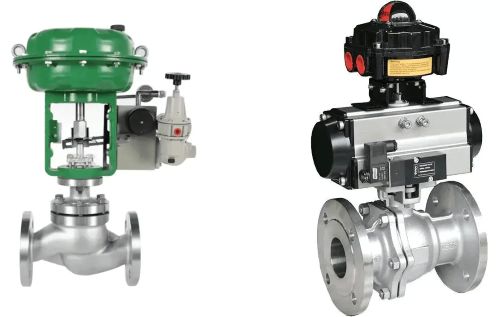


The Role of Pneumatic Control Valves in Environmental Protection
We are a leading control valve manufacturer in China, delivering high-performance valves and precision control actuators designed to meet a wide range of industrial applications.As environmental concerns continue to rise, industries and governments are actively pursuing sustainable technologies to reduce their ecological footprint. Among these technologies, pneumatic control valves play a pivotal role. Renowned for their reliability and precision, these valves regulate the flow of fluids and gases in critical environmental processes. From wastewater treatment and gas emission control to sewage management, waste disposal, and water resource conservation, pneumatic control valves are vital to promoting environmental sustainability.
In modern wastewater treatment facilities, accurate flow regulation is essential. Pneumatic control valves ensure that water, air, and chemicals are distributed correctly at each treatment stage, optimizing system performance and supporting effective pollutant removal.
During primary treatment, these valves control the inflow of raw sewage and the dosing of neutralizing chemicals. This foundational stage sets the tone for effective secondary and tertiary treatment by ensuring proper initial filtration and sedimentation.
Secondary treatment relies on biological processes to break down organic waste. Pneumatic valves regulate oxygen flow into aeration tanks, providing the conditions necessary for bacteria to decompose organic matter efficiently.
For treated water to meet environmental discharge standards, disinfectants like chlorine or ozone must be precisely dosed. Pneumatic control valves ensure the correct amount is introduced, securing water quality and preventing contamination of natural water bodies.
Industries and power plants are major sources of air pollution. Pneumatic control valves help mitigate these emissions by managing the flow of gases and chemicals used in emission reduction systems.
In FGD systems, pneumatic valves regulate chemical dosing and gas flows to efficiently remove sulfur dioxide from exhaust emissions, reducing acid rain and atmospheric pollution.
These valves also control the delivery of reducing agents such as ammonia in SCR systems. By transforming nitrogen oxides into nitrogen and water vapor, they help meet stringent emission standards and improve air quality.
The precision of pneumatic valves ensures consistent performance in emission control systems, enabling facilities to comply with environmental regulations and reduce their carbon footprint.
At the entry point of sewage plants, pneumatic valves control the flow rate of incoming waste to prevent overflow and protect treatment infrastructure.
During biological treatment, these valves manage airflow to support microbial digestion of organic matter, improving treatment efficiency and protecting downstream ecosystems.
In the final stage, pneumatic valves ensure that treated effluent and sludge are discharged in compliance with environmental standards, protecting water bodies and public health.
In waste-to-energy plants, pneumatic control valves regulate waste feed into combustion chambers, ensuring consistent burning and minimizing harmful emissions.
These valves precisely control the flow of neutralizing chemicals, enabling safe and effective treatment of hazardous substances and preventing environmental contamination.
In recycling plants, pneumatic valves manage the movement of water, air, and processing chemicals, boosting operational efficiency and ensuring safe, sustainable practices.
In agriculture, pneumatic valves deliver water with precision, preventing over-irrigation and promoting responsible water use.
Within cities, pneumatic control valves maintain consistent pressure and flow in water networks, reducing leaks and ensuring reliable supply.
During heavy rains, pneumatic valves regulate drainage and reservoir levels, preventing flooding and preserving water quality.
Pneumatic control valves are indispensable in environmental protection efforts. Their high precision, responsiveness, and adaptability enable efficient regulation of fluids and gases across various critical processes. By supporting pollution control, resource optimization, and regulatory compliance, these valves are key to building a cleaner, greener future. As the demand for sustainable infrastructure grows, so will the importance of pneumatic control valves in safeguarding our environment.Know more about Google SEO Directory
